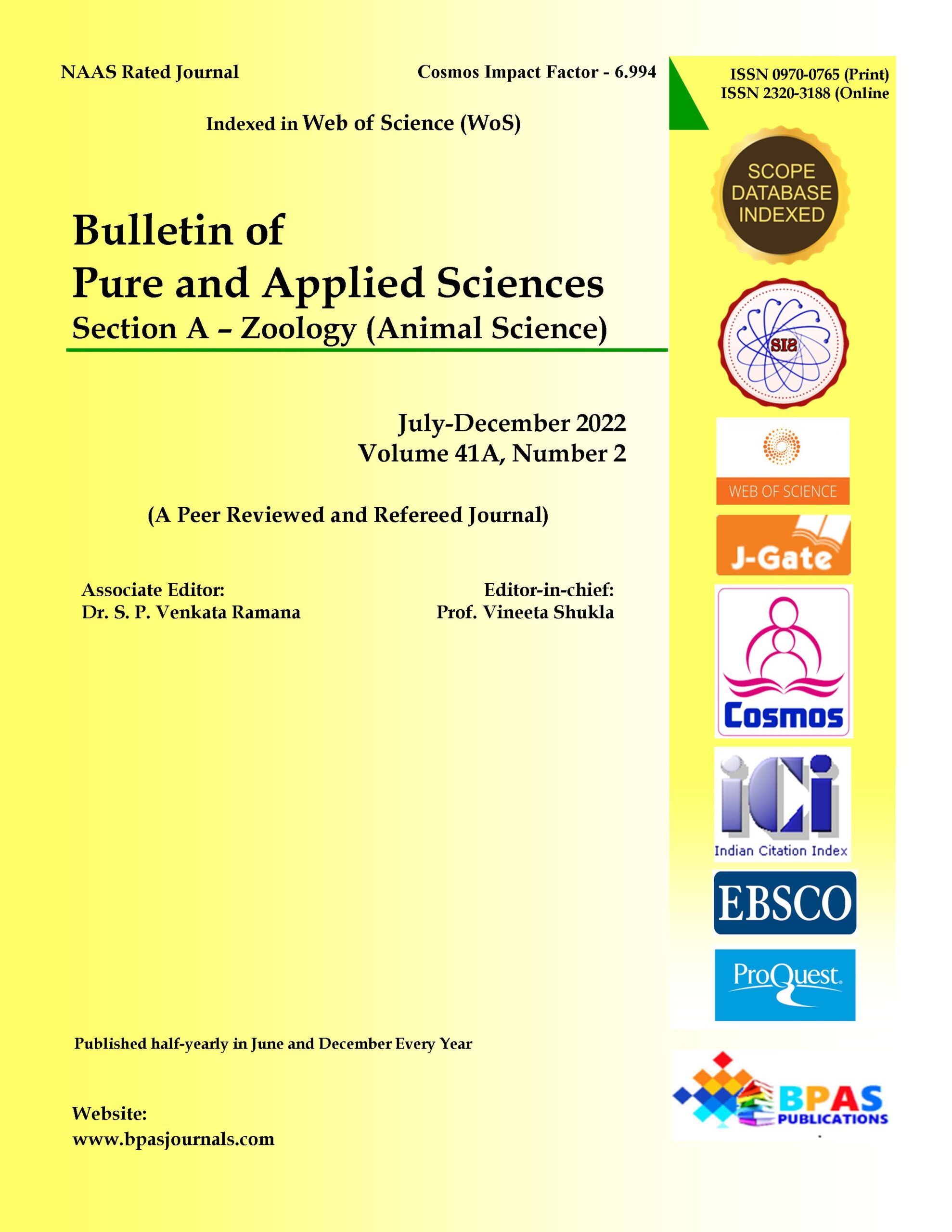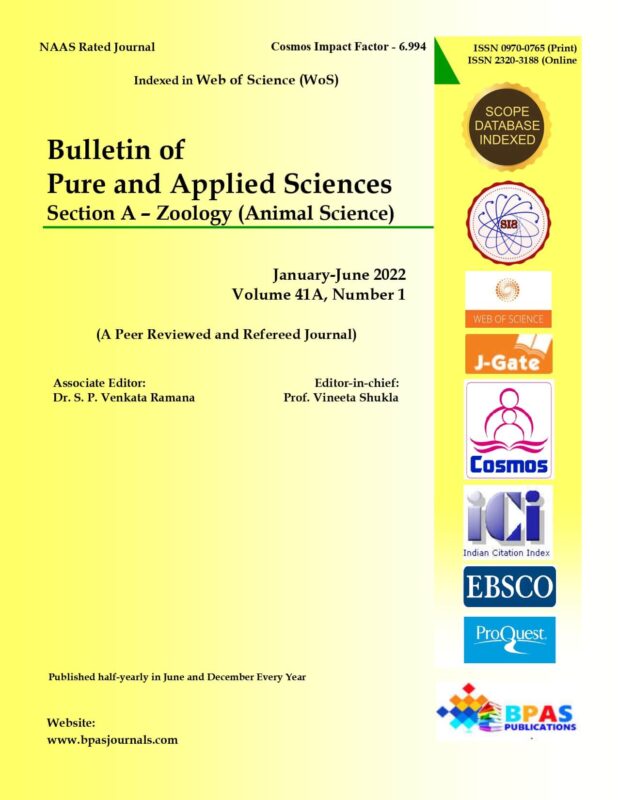Plankton Diversity, Abundance and their Variation in BarbilaBeel, Nalbari, Assam, India
9.38$
Bulletin of Pure and Applied Sciences
Zoology (Animal Science), Vol.41A, No.2,
July-December 2022: P.234-248
DOI: 10.5958/2320-3188.2022.00030.4
Article Info:
Original Research Article
Received on 13.05.2022
Revised on 01.09.2022
Accepted on 18.10.202
Published on 15.12.2022
Description
Plankton Diversity, Abundance and their Variation in BarbilaBeel, Nalbari, Assam, India
1Kamala Deka*, 2Tarali Kalita, 3Bulbul Acharjee, 4Rezina Ahmed
Author’s Affiliation:
1,3 Department of Zoology, University of Science and Technology, Baridua, Meghalaya 793101, India
2,4 Department of Zoology, Cotton University, Guwahati, Assam 781001, India
*Corresponding author:
Kamala Deka
Department of Zoology, University of Science and Technology, Baridua, Meghalaya 793101, India
E-mail: kamaladekazoology@gmail.com
How to cite this article: Deka K., Kalita T., Acharjee B., Ahmed R. (2022). Plankton Diversity, Abundance and their Variation in BarbilaBeel, Nalbari, Assam, India. Bulletin of Pure and Applied Sciences-Zoology, 41A (2), 234-248.


